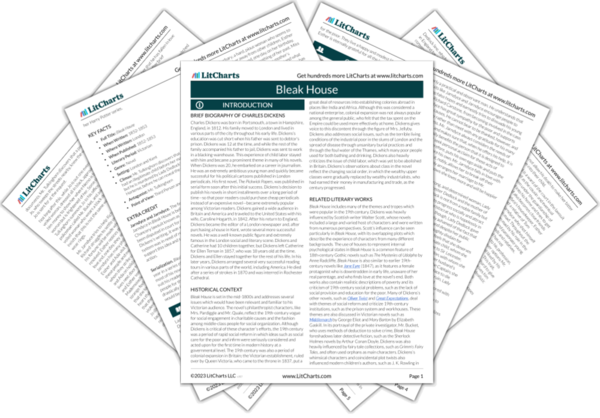LitCharts assigns a color and icon to each theme in Bleak House, which you can use to track the themes throughout the work.
Social Mobility, Class, and Lineage
Passion, Obsession, and Madness
Philanthropy, Social Responsibility, and Kindness
Haunting, Guilt, and Destiny
